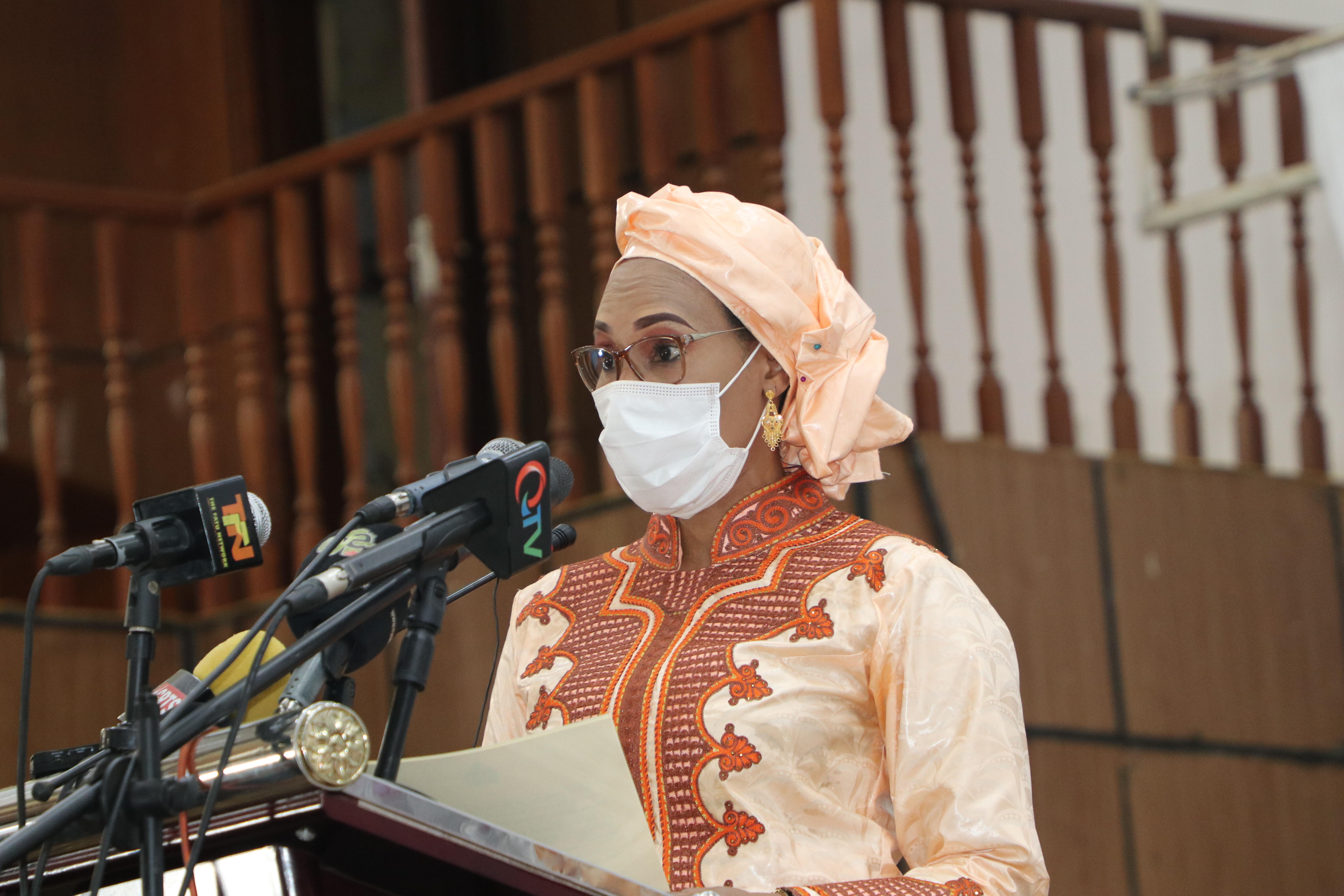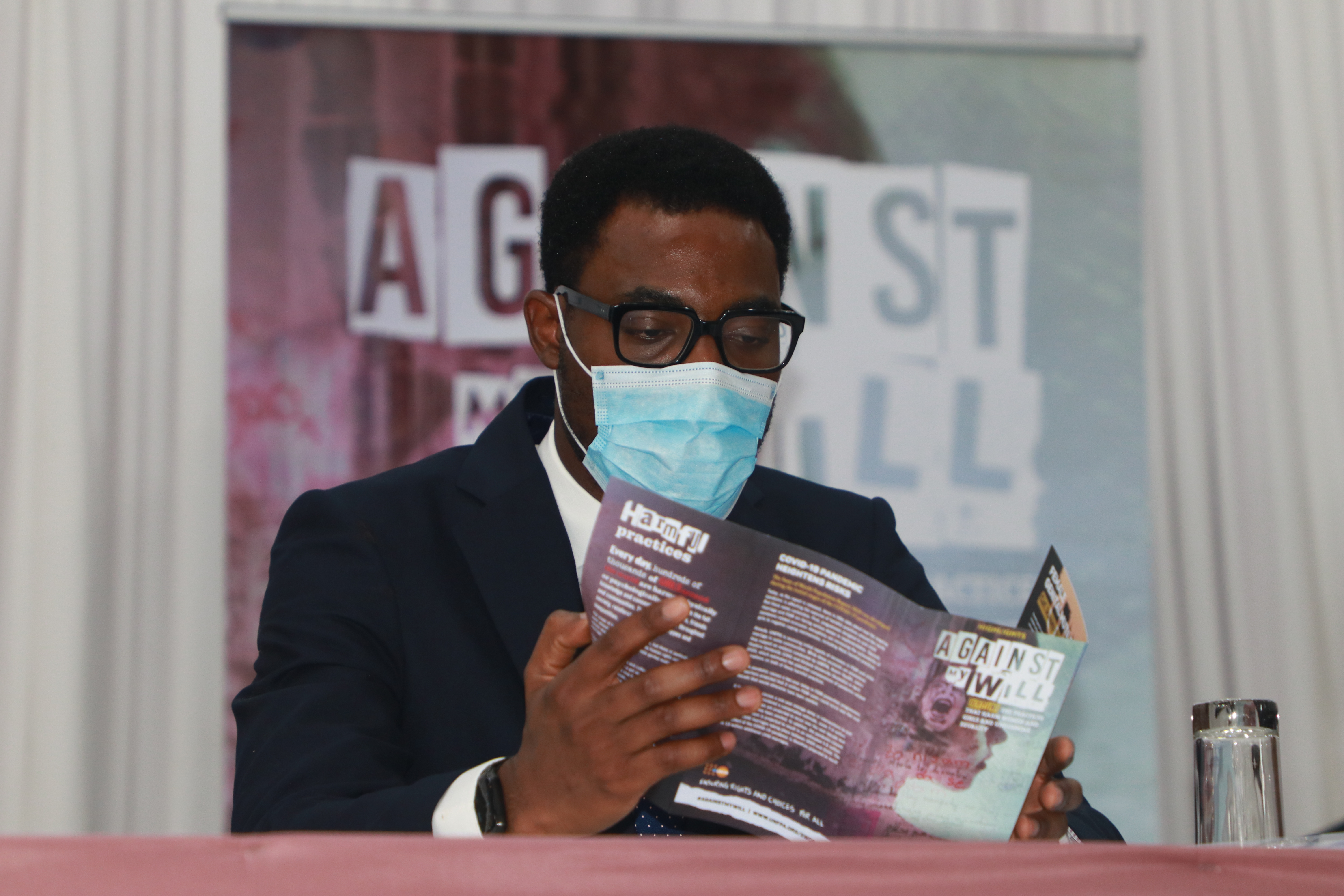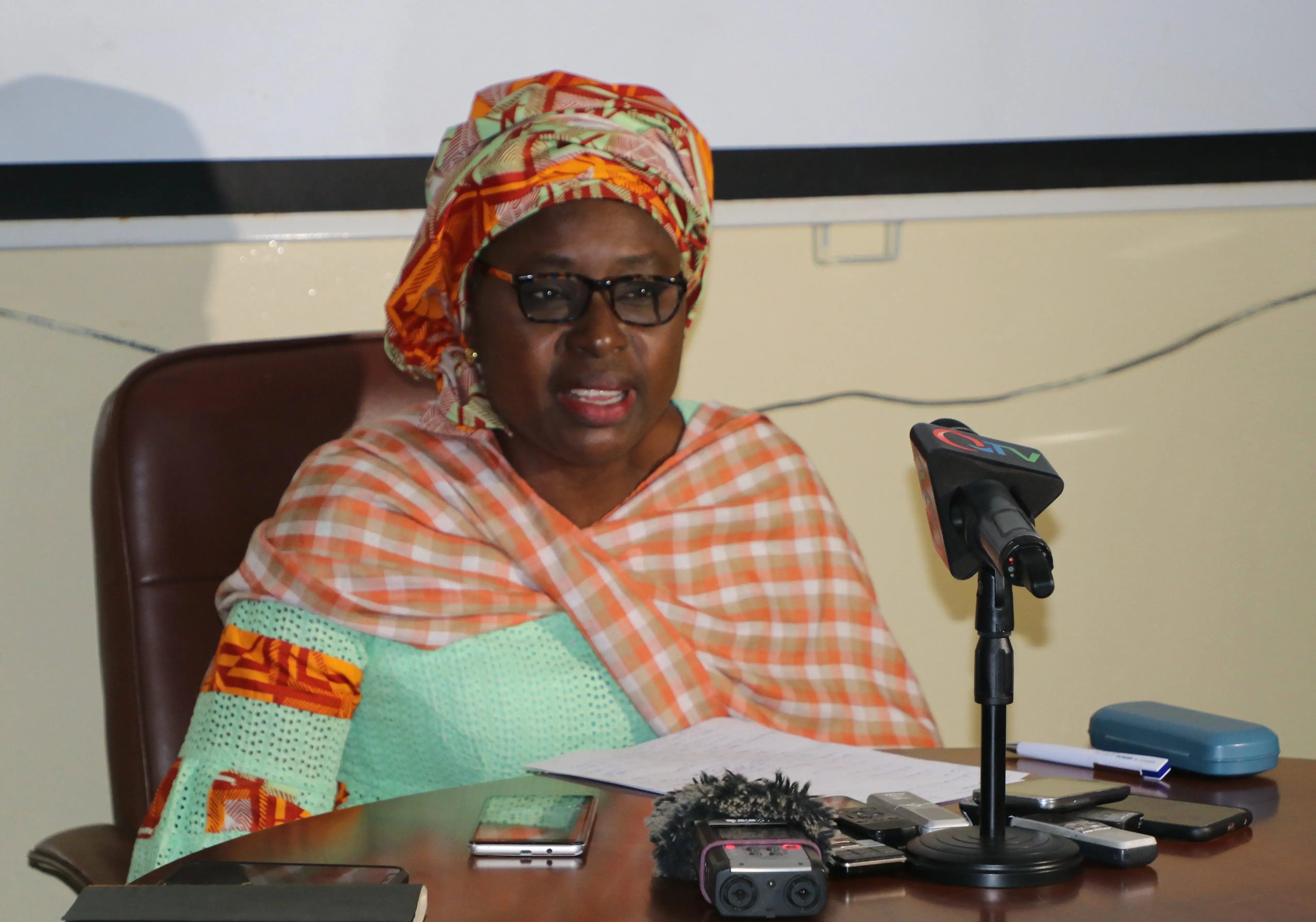Gender Based Violence undermines the health, dignity, security and autonomy of its victims, yet it remains shrouded in a culture of silence. During the COVID-19 pandemic and as a result of restrictions put in place to contain the spread of the virus, incidences of violence are most likely to increase because women and girls are forced to stay at home and in some cases with their abusers.
This reality calls for strategic efforts to put in place a GBV response mechanisms that caters to the needs of victims and survivors and ensures protection, quality emergency healthcare and access to justice.
Responding to this need, UNFPA The Gambia on 30 June as part of the official launch of the 2020 State of World Population (SWOP) report on the theme “Against my will: defying the practices that harm women and girls and undermine equality” unveiled the National Gender-Based Violence Helpline 1313.
The helpline, a part of efforts by UNFPA to support the Ministry of Women, Children and Social Welfare through the UN Multi-Partner Trust Fund (UN MPTF) project aimed at mitigating the impact of COVID-19, will respond to the needs of victims/survivors of violence such as rape, Intimate Partner Violence, assault, among others.
It will offer services such as Psycho-social First Aid and counselling through a multi-sectoral referral pathway that will help survivors recover from the trauma they have experienced and help them integrate back into their normal lives.
According to the UN Resident Coordinator in The Gambia, Ms. Seraphine Wakana, the MPTF project seeks to increase the capacity of the Government and communities to suppress the transmission of COVID-19 and increase access to quality treatment, augment the continuum of care and protection of most vulnerable (including, women, girls, persons with disabilities) in addressing Sexual and Gender based Violence (SGBV), stress, fear and shock of COVID-19 through strong collaboration with the non-health sector.
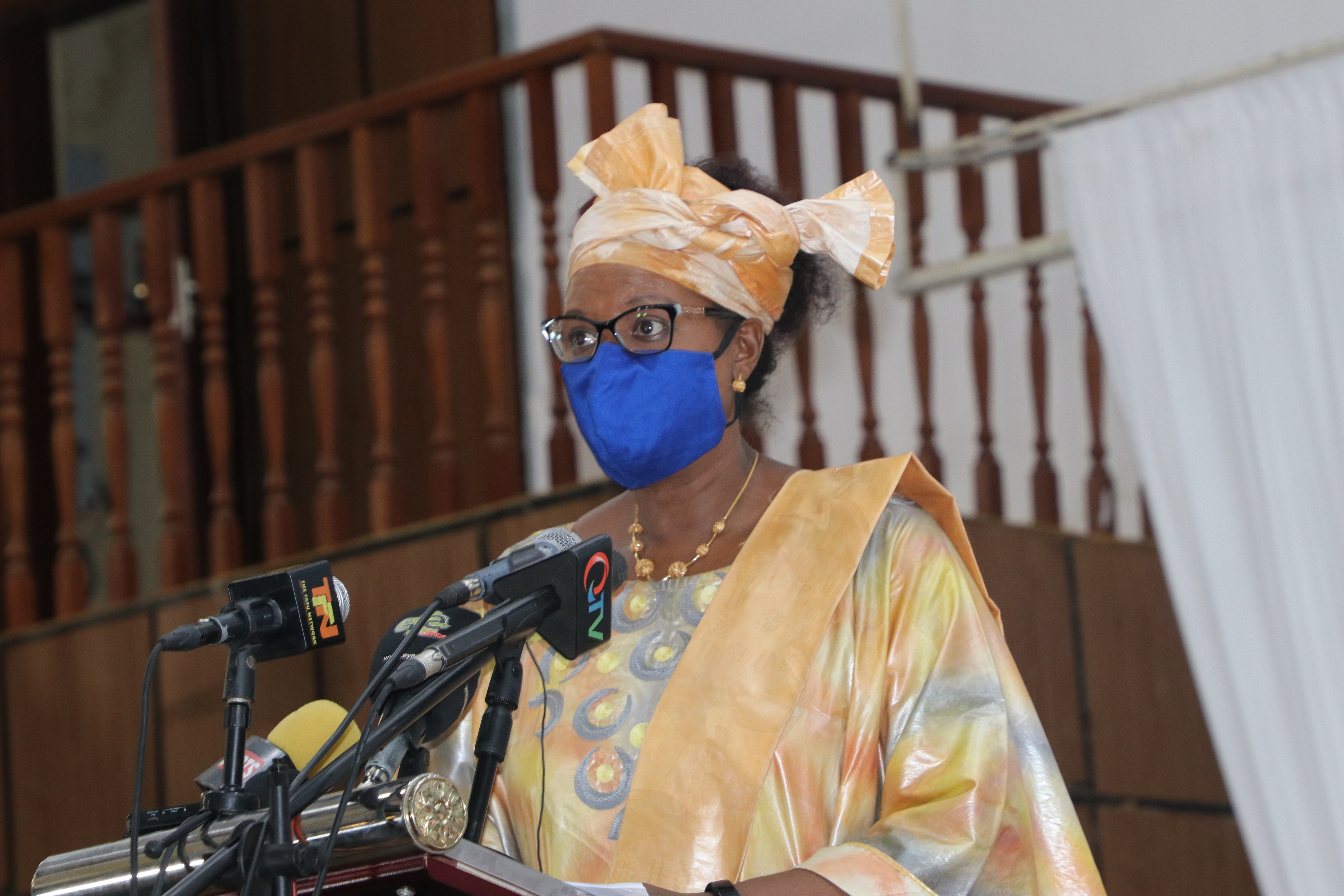
Speaking at the launch ceremony, UNFPA The Gambia Country Representative Mr. Kunle Adeniyi highlighted that the launch of the helpline on the global SWOP launch day is no coincidence because the COVID-19 pandemic has resulted in heightened risks for women and girls to be subjected to harmful practices such as Female Genital Mutilation and Child Marriage, which the 2020 SWOP focuses on and both of which are forms of Gender Based Violence preventable through the use of the helpline. He said the GBV helpline is a timely resource that can provide the necessary care for survivors and families during this pandemic and beyond.
According to Mr. Adeniyi, the 2020 SWOP report makes the case that countries have an obligation under international human rights law to end these practices around the globe. The report highlights the profound and lasting trauma these practices cause our women and girls, robbing them of their right to reach their potential in life.
“Although some of these practices are waning around the world and in the Gambia, due to population growth, the number of girls subjected to them will actually rise in the coming decades, if urgent action is not taken”
Mr. Adeniyi stressed.
Delivering the official launch statement, Her Excellency the First Lady of the Republic of The Gambia, Madam Fatoumatta Bah-Barrow reiterated her office’s commitment to support initiatives geared towards ensuring the protection, wellbeing and empowerment of women and girls of The Gambia and expressed appreciation to UNFPA for always supporting women and girls of the country to live in dignity and health.
According to First Lady, the National GBV helpline came in timely as the incidence of Domestic and Gender Based Violence have increased due to of the COVID-19 pandemic and The Gambia is not an exception.
“Women and girls suffer significantly from Gender Based Violence and the underlying factors are mainly gender inequality, strict gender roles and norms. As a result, we must all put our efforts together to address these issues and enable women and girls live dignified lives. Together, we will win”
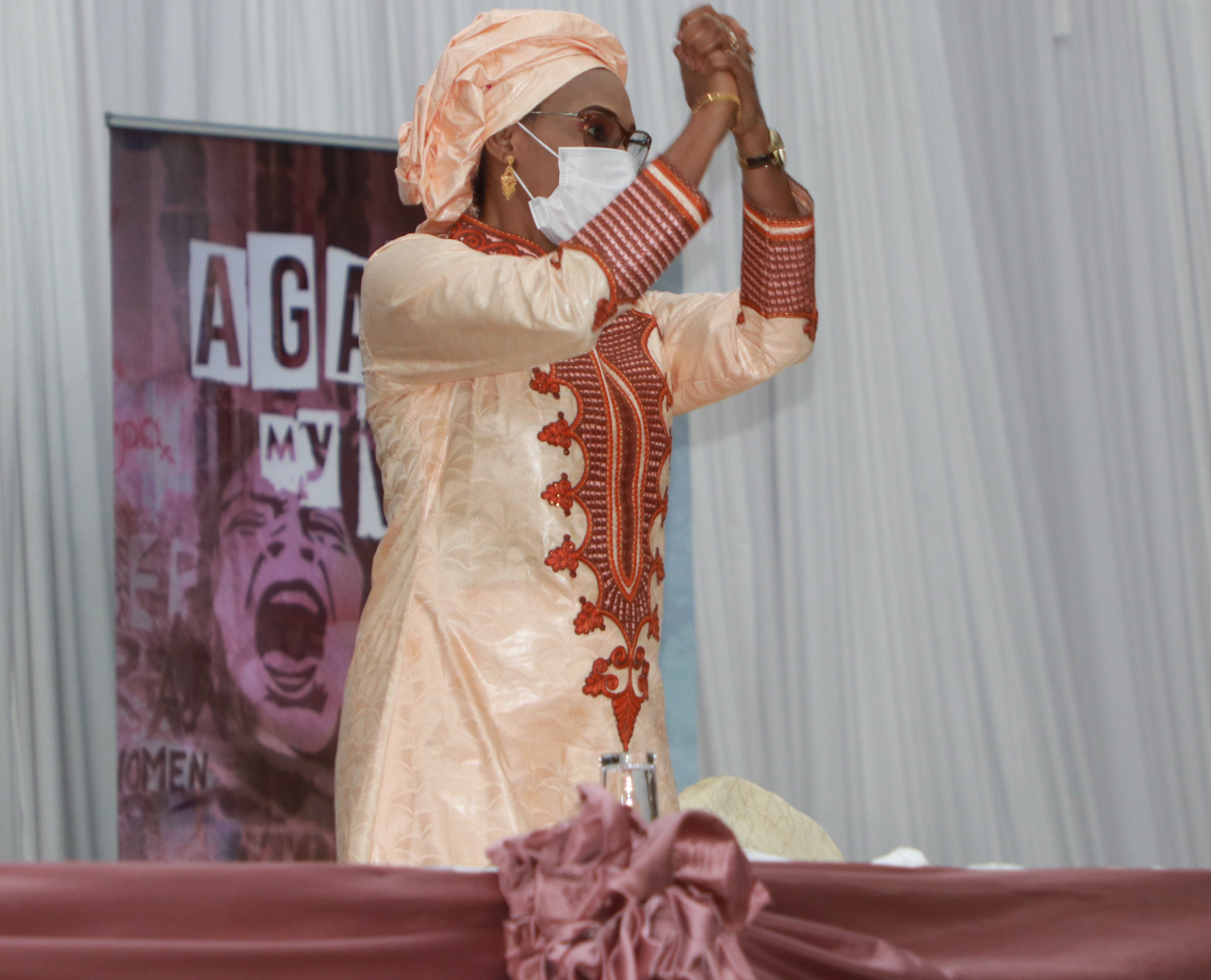
the First Lady said.
Media contact:
Haddy Jonga - Programme Analyst Communications, UNFPA The Gambia jonga@unfpa.org
Isatou Jallow - Communications Associate, UNFPA The Gambia ijallow@unfpa.org

